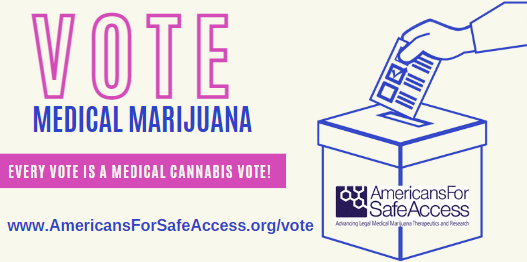
In this issue:
______________________________________

On November 8, U.S. voters will decide the direction of cannabis policy reform. Elected officials at the federal, state and local levels will either help advance cannabis policy reforms to improve outcomes for patients or block them.
This is our best opportunity yet to enact federal medical cannabis laws, impose critical reforms to state medical programs, and usher in local reforms that can actually deliver safe and legal patient access, said Abbey Roudebush, ASA’s Director of Government Affairs. Your votes can help keep existing allies in office, introduce new elected advocates, and increase engagement on medical cannabis from the White House to your City Council.
Visit ASA’s Vote Medical Marijuana resource page to find more information on candidates and to check your voter registration or submit a new registration.
______________________________________
On October 6, 2022, President Biden took an historic step toward reform of federal cannabis laws when he issued A Proclamation on Granting Pardon for the Offense of Marijuana. While it did not end federal prohibition, he granted a full and immediate pardon of all federal convictions for simple possession of cannabis. The presidential order covers all federal convictions since simple possession became illegal under federal law almost 50 years ago. President Biden also urged all state governors to follow his lead and pardon those convicted of state-level simple possession of cannabis.
The same day, the White House released a Statement from the President on Marijuana Reform, which outlines the steps the Executive Office is taking to begin to fix the federal government’s failed approach to cannabis policy. In that statement, President Biden directed the Attorney General to begin an administrative review of how cannabis is scheduled under the Controlled Substances Act. In public comments, President Biden stated that the current scheduling of cannabis, which classifies it as more dangerous than cocaine and methamphetamine, is clearly wrong and should be changed.
ASA is pleased to see that the White House is beginning to right some of the wrongs from the War on Drugs, said ASA Executive Director Debbie Churgai. However, there are still 5.1 million Americans who rely on cannabis for health-related reasons each and every day who are still struggling just to legally access and use their treatments.
ASA will continue to work on the state and federal level to push policymakers to continue cannabis reform and ensure that no patient is left behind.
______________________________________
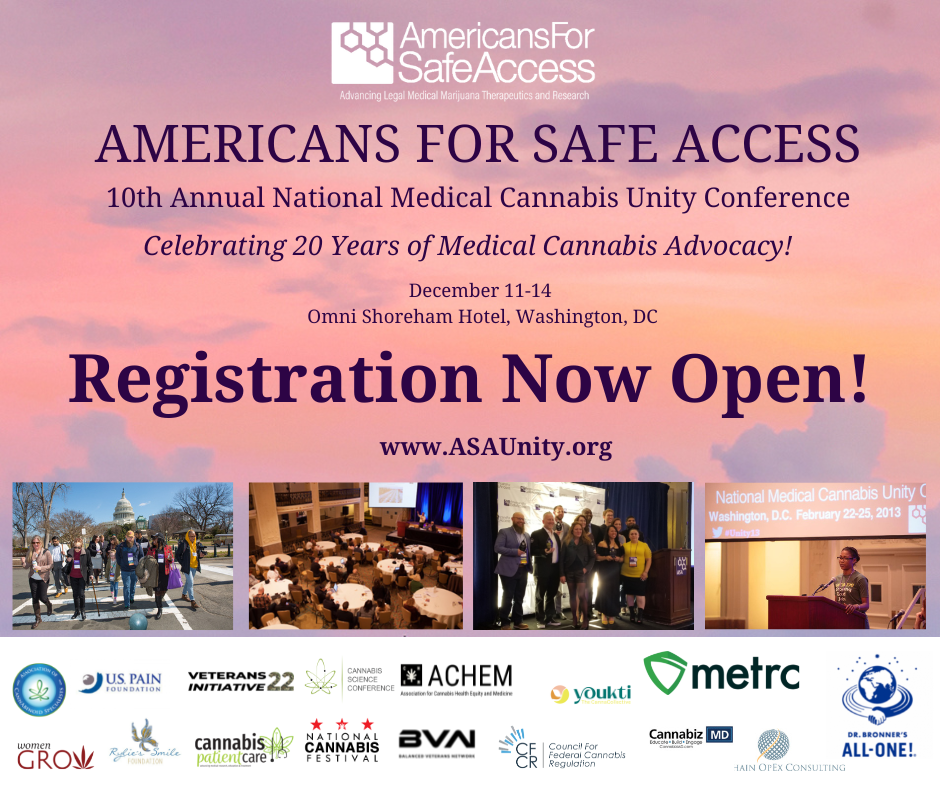 Americans for Safe Access
has opened registration for its 10th annual National Medical Cannabis
Unity conference. The theme for Unity 2022 will be "Celebrating 20
Years of Medical Cannabis Advocacy. The conference will take
place December 12-14 in-person in Washington, DC at the Omni Shoreham
Hotel. More information about registration is available at https://www.asaunity.org/unity_2022_register.
Americans for Safe Access
has opened registration for its 10th annual National Medical Cannabis
Unity conference. The theme for Unity 2022 will be "Celebrating 20
Years of Medical Cannabis Advocacy. The conference will take
place December 12-14 in-person in Washington, DC at the Omni Shoreham
Hotel. More information about registration is available at https://www.asaunity.org/unity_2022_register.
ASA’s 2022 Unity Conference is made possible by the generosity of ASA supporters in partnership with these sponsoring organizations:
______________________________________
ASA has long offered scholarships to attend its national medical cannabis unity conference, but this year activism is being rewarded. Instead of applying for one, ASA members and supporters will receive Unity scholarships for either helping collect signatures on ASA’s petition or by helping get a conference sponsor on board.
In both cases, the Unity scholarships are tiered. The more successful activists are, the more they receive. Those who collect 250 signatures on the petition get free registration to Unity 2022. Collect 500 and hotel lodgings are included. Get 1,000 to sign and the scholarship includes registration, lodging and a travel voucher up to $500. Activists who help get sponsoring partners for the conference on board can get VIP registrations, lodging and travel vouchers.
Scholarships are transferable to others. Find out more and get started today at https://www.asaunity.org/scholarships.
______________________________________
Cannabis Science Conference East in Baltimore, Maryland, which provided a 25% discount for ASA members, included ASA activists in several panels of the event’s medical cannabis track.
Rylie and Janie Maedler of Rylie’s Sunshine, who have presented at ASA Unity conferences and whose foundation is one of the sponsoring partners of Unity 2022, delivered a keynote address on pediatric access and were part of the panel on pediatric patients and their parents. The mother-daughter activist duo were were featured in the May 2019 issue of this newsletter.
The panel Innovations in Cannabis Research for Veterans featured Eryck Stamper from Veterans Initiative 22, which is a sponsoring partner of Unity 2022, and Cherissa Jackson from We Decode LLC. Both Stamper and Jackson were each profiled in the ASA Activist Newsletter. Stamper, a retired U.S. Navy Senior Chief Petty Officer, was featured in the November 2019 issue. Jackson, a retired U.S. Air Force captain, was profiled in the November 2020 issue. Jackson also presented on the work of her We Decode group, which is applying DNA information to treatment decisions about cannabinoids and terpenes.
______________________________________
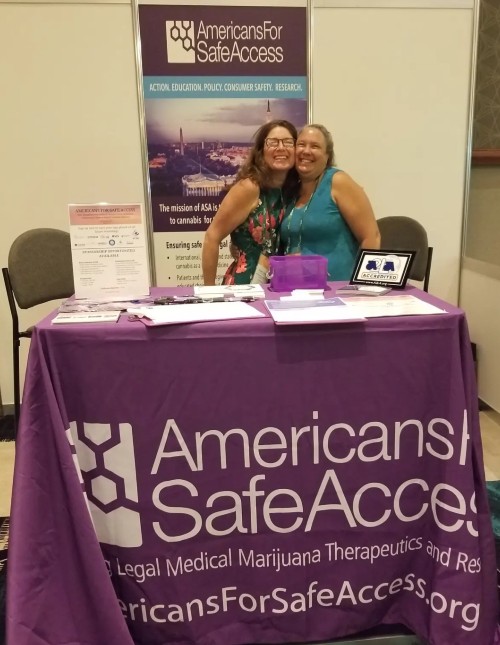
On September 28-20, ASA President and Founder Steph Sherer and ASA Executive Director Debbie Churgai attended MJunpacked in Las Vegas, Nevada.
Sherer spoke on a panel centering around federal cannabis legislation. Churgai and ASA volunteers shared information with conference attendees.
MJunpacked generously provided ASA with booth space and four tickets to the event. Organizers also pledged to donate 5% of their registration revenues to several non-profit organizations, including ASA.
We are so grateful for the opportunity to attend this event and represent medical cannabis advocacy, said Churgai. A big thank you to Piper Lindeen, Nicole Robins, and Amy Marasco who volunteered their time to help out at our booth!
______________________________________
Americans for Safe Access is collecting signatures on a federal petition urging Congress and President Biden to enact legal access to cannabis throughout the United States.
Over 5 million Americans are registered cannabis users. Medical cannabis is legal at the federal level in nearly 50 countries. Although medical cannabis is legal in 36 states, the District of Columbia, and four U.S. territories, it is still illegal at the federal level, causing barriers to access and injustices to patients across the country.
Continuing federal prohibition harms America’s veterans, patients in federally subsidized housing, and every patient or family that needs to travel across state lines, said ASA Executive Director Debbie Churgai. Congress can remove the legal, financial, and employment barriers that affect medical cannabis patients in every state and U.S. territory.
To find out more about the petition and add your name, go to https://www.safeaccessnow.org/federalpetition2022.
______________________________________
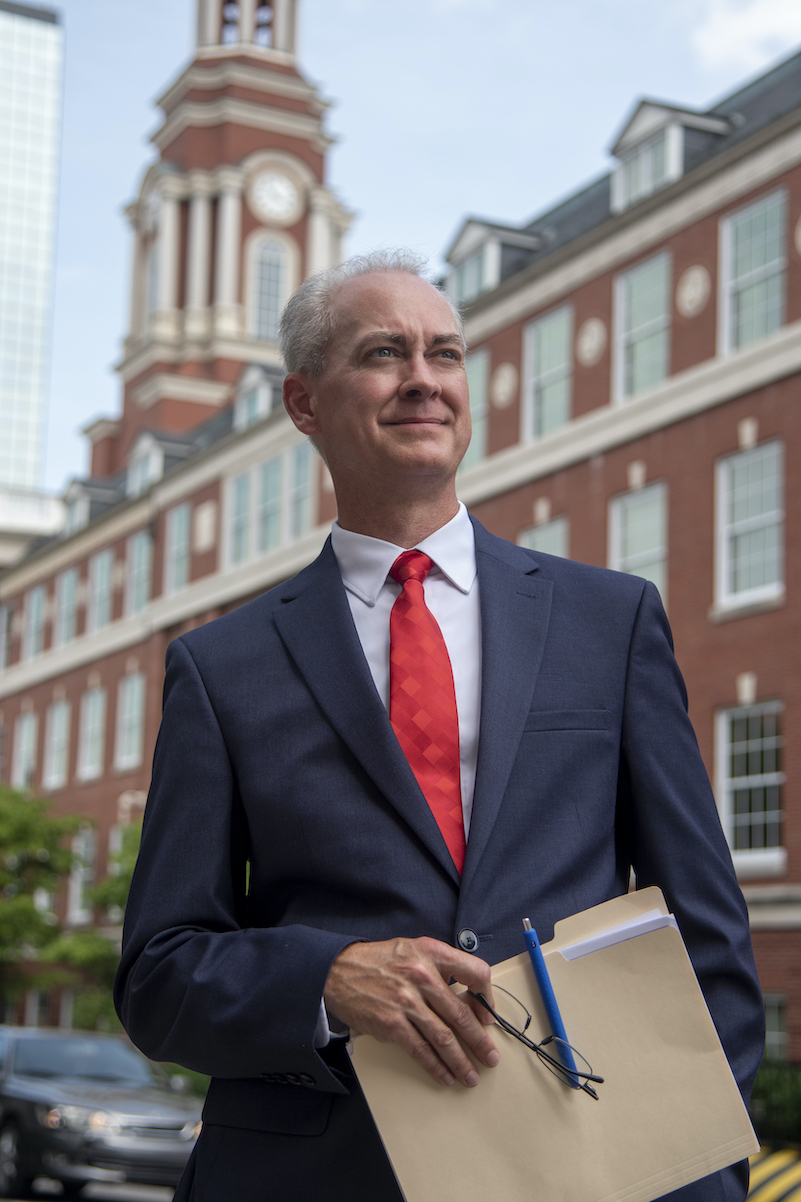
Today is bonus day 1,248. That’s what Kent Morrell would say if he was talking to you now. That’s how he always begins his story — with how many days it has been since cannabis rescued him from the crippling pain and despair that had him on the brink of suicide.
The turning point, the day Kent says he got his life back, was Memorial Day, 2019. That was also the day that set him on the path of political activism and running for elected office.
For nearly 20 years, Kent had been in what he calls the valley of suffering, ever since he and his family were involved in a serious car crash. Kent was driving and saw the accident coming. He instinctively clenched the steering wheel, bracing for impact as the other car t-boned them. His doctor would later tell him that was the worst thing he could have done. Tensing up transmitted the force of the crash through his torso, tearing loose muscle and connective tissue from his spine.
At first, the medical professionals said Kent should get better with time. He was sent to physical therapy, but that treatment only made things worse. After two years, Kent’s doctor told him that the nerve damage in his spine would not improve. His injury and the intense pain it produced would be permanent.
A small business owner, Kent faced hard choices. One of Kent’s employees, now a partner in the company, was able to step up and take over operations and keep things running, but Kent had lost about 80% of his income. He and his wife, a stay-at-home mom, had a nice house, and their four children were in private school, but Kent’s return to work now appeared impossible.
We had to rearrange our whole life, Kent says. We pulled the kids out of school, sold the house and downsized to something we could afford and my wife got a job. For the next 18 years we operated under the assumption that I was not going to get better.
The pain associated with nerve damage that Kent experiences is the most difficult type of pain to treat. For more than a dozen years, Kent agreed to every surgery and treatment his doctors suggested. The amount of opioids he needed to manage his pain escalated until he was taking maximal doses.
By luck of the genetic draw, Kent metabolizes opioids more efficiently than the general population does, requiring him to take more than most to get pain relief. That was not too much of a problem until 2015, when a change to Tennessee state law meant he had to stop seeing his general practitioner and seek care from a certified pain specialist. It took seven months to find a physician whose office would see him. During that process he was screened by a series of nurse practitioners, all of whom wanted to decrease the amount of medicine he was receiving.
One told me that adding me to the practice would flag them for an audit because I would increase the average prescription amount by so much, Kent remembers. Most of them didn’t understand the significance of the genetic testing my primary care doctor had done, or they had never heard of it.
Once he found a pain specialist who would treat him, a battle over medication began. The doctor pressed Kent to reduce his opioid use and submit to invasive procedures such as epidurals. Kent had already tried those without success. Nonetheless, his doctor insisted he have a pain pump implanted in his back. After doing some research on risks and likely results, Kent decided against it. Kent had agreed to so many surgeries it was hard to keep count, but now he was done.
The pain specialist dropped Kent from his practice. As is typical of chronic pain patients, Kent had an emergency supply of pain medication he had saved, but he knew it would only last weeks, not months. He began rationing the pain killers and focused on getting past the weddings of his two daughters. As the pain increased, Kent sank deeper into despair. He was plagued by depression, anxiety and panic attacks. Suicide increasingly seemed to be the only solution.
What Kent knew then about cannabis was wrapped up in his Southern Baptist upbringing: it was the Devil’s lettuce that led to hell and death. He also didn’t want to break the law, no matter what he heard about the potential of cannabis to treat neuropathic pain. But he also didn’t want to abandon his wife and children.
Kent turned to cannabis when he didn’t have legal options. Cannabis broke the pain cycle and gave him the best sleep he had in years. He woke without pain on Memorial Day 2019, 14 months to the day since he’d lost access to pain management. Kent and his wife couldn’t believe it. They didn’t know how long cannabis would continue to work, so over the next two months they packed in five trips to the beach and as many other fun things as they could.
By August 2019, I decided that maybe this was going to last a while, Kent said. What can I do? I should go into politics.
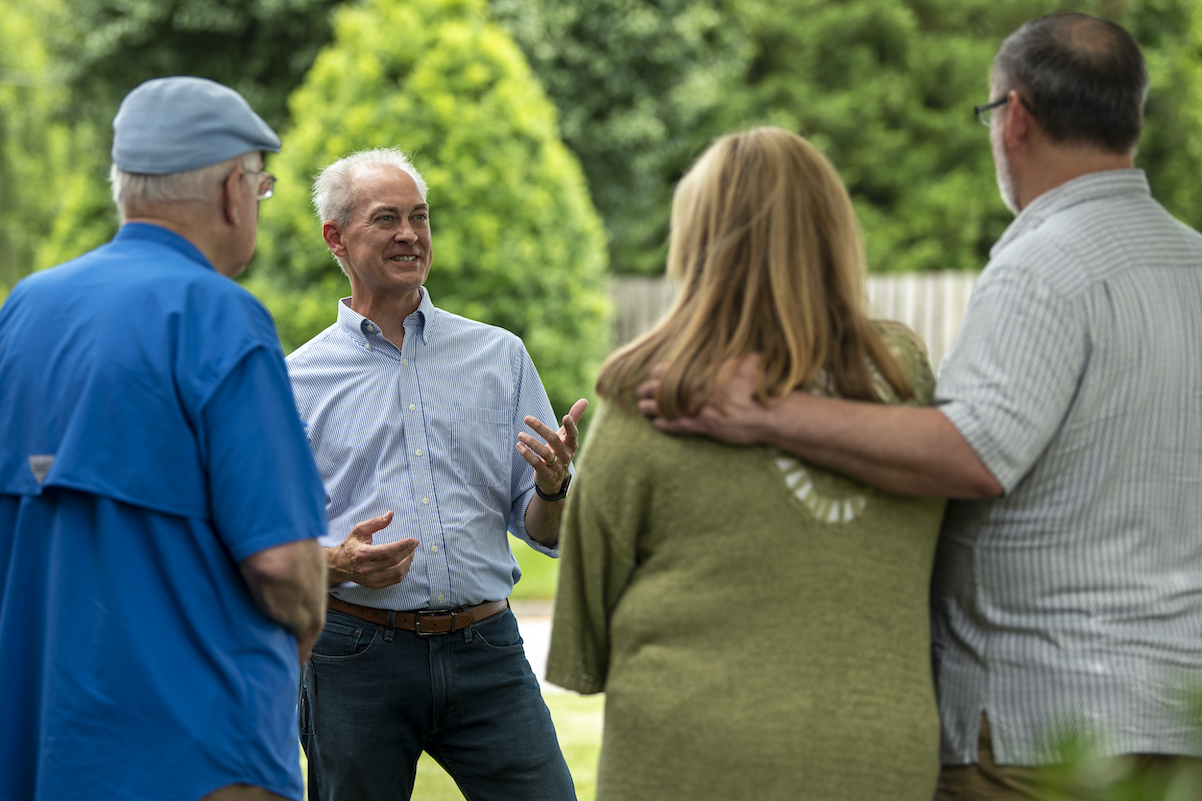
His target was his incumbent state senator, Richard Briggs, a surgeon and retired Army colonel who was steadfastly opposed to medical cannabis. But Sen. Briggs’ four-year term would not be up for two more years.
Kent decided he could get some practice by running in Tennessee’s open U.S. Senate race to replace Lamar Alexander. As one of 15 candidates, he knew there was no chance of election, but it was a chance to talk about safe access and lobby Lamar’s likely replacement, Bill Haggerty.
I got so I could deliver a good pitch in 3 minutes, Kent said. In my first speech, 300 people in a very conservative area, I was so nervous, I didn’t mention cannabis. ‘Natural treatments’ was my code word, but I decided after that first speech, if I want to move the ball forward, I have got to talk openly about cannabis. So from that point forward, I did. I talked about cannabis saving my life.
Kent would tell audiences, No Tennessean should be forced to make a decision between suicide and an illegal treatment. Turns out, cannabis saved my life. Then he’d pause to see what reaction he got, if people were hissing or upset, but nobody cared. And after every speech people would come up to Kent and thank him for talking about it publicly. Many were law enforcement or in similar roles and told him similar stories about how cannabis was the only thing that works for them.
Bill Haggerty won that U.S. Senate race, but Kent was back this year, running for Tennessee state senate to replace the incumbent, Dr. Briggs. He also ran for the state Executive Committee of the Republican party. Kent lost the state senate election, but he won a seat on the Executive Committee, which he intends to use as a platform to advocate for cannabis reform.
When I realized what cannabis could do for me, that’s when the scales were lifted from my eyes, Kent said. I realized we’d been lied to for decades about the dangers of cannabis, and I don’t mean little lies. Huge lies!
Kent continues to campaign for safe access in Tennessee, along with ASA activist David Hairston and others. He hopes to convince more citizens to get involved.
In Tennessee, only 22% of those who could showed up to vote. If you’re not voting, I don’t want to hear you complain about what’s happening in this country, Kent said. Good governance is not a spectator sport.
Now that Kent has his life back, he is not about to be a spectator.
I’m going to devote every dime I make to moving this issue forward, Kent said. "If I get a few more years, you better believe I’m going to be working on fixing this for people."
______________________________________
ASA needs to hear about your experience of safe access locally in order to complete the 2022 State of the States Report This annual report evaluates the medical cannabis laws and regulations of every state and territory and analyzes how they are providing for patients.
The online survey takes less than 10 minutes to complete. ASA is soliciting feedback from individuals in every state and U.S. territory.
Please help ASA get an accurate picture of what access to medical cannabis is like where you live, says ASA Executive Director Debbie Churgai. We really do review all your responses and incorporate them into our grading. We want to make sure that your state’s grade reflects your experiences.
The online State of the States patient survey can be completed at www.safeaccessnow.org/sos22survey.
______________________________________
Download a PDF of this newsletter to print and share!
______________________________________